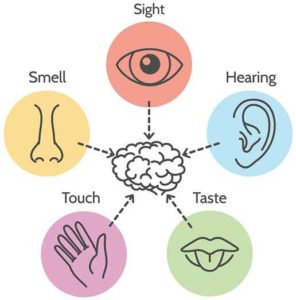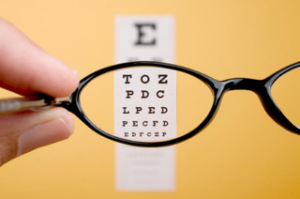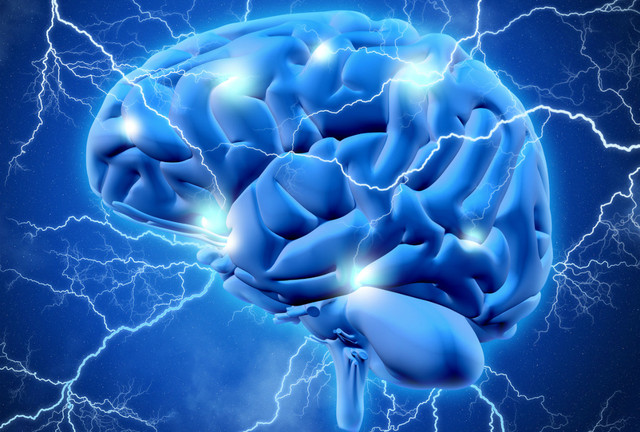 Now there’s a title! Actually, I was going to call this by another name – the one associated with someone who’s parents were not married when he/she was born – but I decided that might not make it through the family Internet ‘screeners‘… So we’ll stick with illegitimate!
Now there’s a title! Actually, I was going to call this by another name – the one associated with someone who’s parents were not married when he/she was born – but I decided that might not make it through the family Internet ‘screeners‘… So we’ll stick with illegitimate!So what does this mean? By this I mean Parkinson’s lesser-known symptoms – those symptoms that are common but no one really talks about much – those ‘hush hush‘ symptoms. A lot of us have these issues, but I’ve found they are not understood well and are very under-reported. So I thought it might be a good little series to bring these issues out into the open. It hopefully will cause us to discuss these more openly with our doctors. And those without PD might be able to understand a little bit more where we with PD are coming from.
So for the next few blog entries, I’m going to bring forward some of these less-talked-about symptoms. Hopefully it won’t ‘gross‘ everybody out, but hey that’s life and we are all adults here – well at least some of us! (BTW ‘gross‘ is one of those slang words used by those of us who grew up in the 60’s and especially the 70’s – just in case you wanted to know! <grin>)
Therefore… Part I is going to be about….
The 5 Senses!
 You might think at first that PD shouldn’t affect our five senses; but turns out that Parkinson’s is more tricky than we thought – that dirty rascal. Our five senses CAN be affected because of PD, so let’s go through each one and see (ha – get it?) how PD can affect that particular sense.
You might think at first that PD shouldn’t affect our five senses; but turns out that Parkinson’s is more tricky than we thought – that dirty rascal. Our five senses CAN be affected because of PD, so let’s go through each one and see (ha – get it?) how PD can affect that particular sense.Smell

The first, most obvious one, is smell. Did you know that loss of smell may actually indicate ahead of time that someone is prone to getting PD? They are not sure exactly why this happens, but it is theorized that this occurs because Parkinson’s may not initially start in the brain but rather the gut and/or olfactory bulb. This is the part of the brain that registers smells, and they believe it can be affected by the build up of alpha-synuclein. As you may (or may not) know, alpha-synuclein is a protein, found in PD patients, that ‘clumps‘ up and destroys the dopamine brain cells – much the same way that certain other proteins clump up in Alzheimer’s patients.
A lot of people with PD say that they lost their smell years before they were diagnosed with Parkinson’s, and that is why researchers are looking into the possibility that loss of smell might indicate that a person could develop PD in the future. I am lucky so far in that my BIG old smeller seems to have not been affected (yet); I become keenly aware of this when I am out driving in the summer and drive by a hog or cow farm – PEE-EW!!
Sight

Now a lot of folks – including my ophthalmologist – wouldn’t think that PD would affect the eyes. Even I didn’t realize it could until I experienced it myself; then I saw an article from MJFF about sight issues with Parkinson’s. One reason for PD patients having eye issues is that we may begin blinking less and less – therefore we tend to suffer from the common ‘dry eye‘ syndrome. Luckily, artificial tears or eye drops help. But did you also know that the cells in the back of our eye (rods and cones – think back to high school biology, people) use dopamine and other neurotransmitters to process and perceive color? And what is the primary cause of PD? Yep, lack of dopamine due to those cells dying in our brain. So it is no wonder that we Parkies can have eye issues! I know that, in my case, it definitely affects my night vision – so much so that it is now almost impossible for me to drive at night – especially if I have both vision issues and dry eyes! Oh well, my wonderful wife has become my night ‘chauffeur‘! (Ah, yes, would you please pass me the Grey Poupon, James?)
Taste

I’m not sure how many folks with PD experience this; but I have talked to a few who tell me that once they began experiencing the symptoms of Parkinson’s (i.e. tremor, rigidity, etc.) they noticed they couldn’t taste things as well as they used to – if at all! This seems to happen along with the loss of smell.
Now, some things I wouldn’t mind ‘not tasting‘ – for me, peas come to mind…. but it must be a terrible thing to not be able to taste food – a juicy steak, sweet rich dark chocolate (!), salty cashews, and such.
I am not sure why this happens (and I don’t know if researchers know either) – and it doesn’t happen with everyone. But some of the research I read indicated that it may be caused by the same process that causes loss of smell – the part of the brain that ‘tastes‘ gets affected by the build up of alpha-synuclein. And there are some other risks that can happen with loss of taste – inability to detect spoiled food; possible weight loss due to the fact that one cannot taste their food and therefore eat less; increasing salt or sugar in an attempt to ‘force‘ one to taste food; and nutritional deficiencies due to less enjoyment of food. So again, if you have a taste issue it is a good thing to bring it up with your doctor or neurologist pronto!
Hearing

Believe it or not, but the research I did told me that hearing loss could happen with Parkinson’s patients! I never thought that hearing itself is affected by PD – but it’s been found that hearing loss is almost twice as likely in folks with Parkinson’s – especially the elderly. Turns out the the cochlea (that little apparatus in your ear that you ‘hear’ with) uses – yep you guessed it – those neurotransmitters, including dopamine, to help protect the cochlea from noise exposure. Less dopamine – and the ear can be damaged from loud noises (hopefully no one out there with PD listens to too much Heavy Metal – yeah man, cool!). It also appears that PD can affect processing of sounds – resulting in slower processing and comprehension.
But it can also have other consequences – in that those of us with PD tend to have a much softer voice as time goes on; so much so that others can’t hear us very well. So far this hasn’t affected me – my family and friends would probably say I have a ‘large‘ mouth anyway – or more likely that I have a big voice. But I have been around other Parkies and have noticed that a lot of them have much softer voices, so I know that this more than likely may affect me in the future.
Fortunately, there are things we can do to help – if you have PD and experience hearing loss, make sure your doctor or neurologist refer you to a hearing care professional. And if you have the ‘soft voice‘ problem, there is training that can help – for instance, the ‘Big and Loud‘ training (LVST Loud). This training can help us re-learn how to speak up and get ourselves heard.
Touch
 This was another one that surprised me – your skin is actually the largest organ of the body, and researchers have found that your sense of touch can be affected by Parkinson’s! They think this may have to do with PD affecting the somatosensory (yeah, that’s a word!) areas of the brain (those regions that register touch, temperature, pressure, etc.). Therefore, some PD patients find that they can’t ‘feel‘ something as well as they did before – for instance, using their sense of touch in the fingers to determine what an unknown object might be. This is called sensory dysfunction/denervation of the skin.
This was another one that surprised me – your skin is actually the largest organ of the body, and researchers have found that your sense of touch can be affected by Parkinson’s! They think this may have to do with PD affecting the somatosensory (yeah, that’s a word!) areas of the brain (those regions that register touch, temperature, pressure, etc.). Therefore, some PD patients find that they can’t ‘feel‘ something as well as they did before – for instance, using their sense of touch in the fingers to determine what an unknown object might be. This is called sensory dysfunction/denervation of the skin.Also, I found that the skin itself can be affected with a number of other little issues – dermatitis, excess sweating, tingling or pain in the skin (some folks say their skin feels like ‘pins and needles’), perception of hot and cold, itching, rash and such. They believe that a lot of these symptoms is caused by – once again – insufficient dopamine and other neurotransmitters! In addition, skin and touch issues can be affected by the very medications we take to keep us going each day! (Oh great!!) So again, if you experience any of these, make sure you let your physician or neurologist know – there are things they can do to help you out with these type of problems!
Summing It Up
 So as you see, Parkinson’s can affect more than just motor functions – it can end up affecting our five senses. It really is an insidious disease, affecting not just our motor skills, but also many other parts of the body. But there are a few ways we can foil old man Parkinson’s plans, so if you recognize any of these symptoms, talk to your doctor – remember, there are ways to reduce the effect of these types of symptoms!
So as you see, Parkinson’s can affect more than just motor functions – it can end up affecting our five senses. It really is an insidious disease, affecting not just our motor skills, but also many other parts of the body. But there are a few ways we can foil old man Parkinson’s plans, so if you recognize any of these symptoms, talk to your doctor – remember, there are ways to reduce the effect of these types of symptoms!I hope you learned something about PD and your senses in this entry – and for those without Parkinson’s I hope it will help you better understand what we Parkies have to go through sometimes. In upcoming portions of this series, I’ll discuss some of those other often overlooked, less understood symptoms. So stay tuned!



